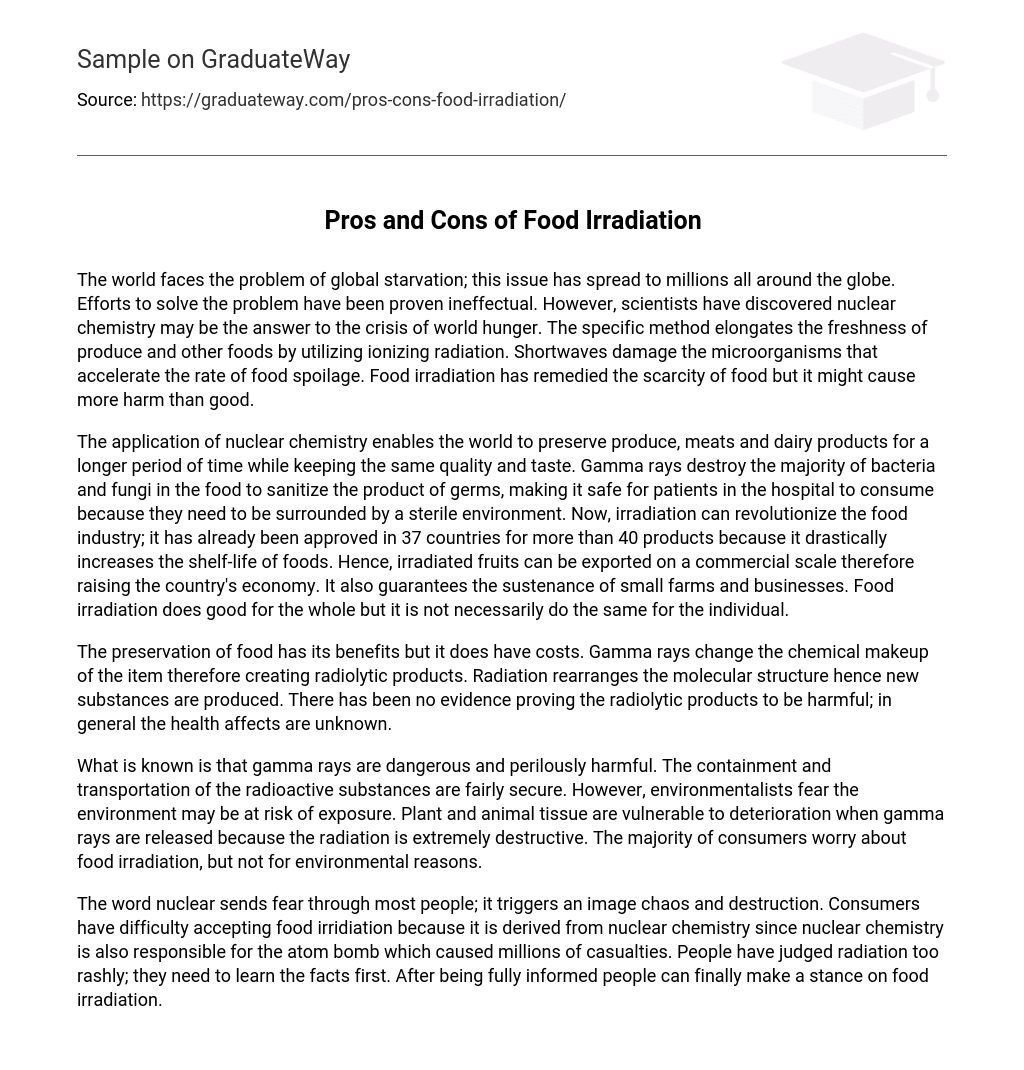The world faces the problem of global starvation; this issue has spread to millions all around the globe. Efforts to solve the problem have been proven ineffectual. However, scientists have discovered nuclear chemistry may be the answer to the crisis of world hunger. The specific method elongates the freshness of produce and other foods by utilizing ionizing radiation. Shortwaves damage the microorganisms that accelerate the rate of food spoilage. Food irradiation has remedied the scarcity of food but it might cause more harm than good.
The application of nuclear chemistry enables the world to preserve produce, meats and dairy products for a longer period of time while keeping the same quality and taste. Gamma rays destroy the majority of bacteria and fungi in the food to sanitize the product of germs, making it safe for patients in the hospital to consume because they need to be surrounded by a sterile environment. Now, irradiation can revolutionize the food industry; it has already been approved in 37 countries for more than 40 products because it drastically increases the shelf-life of foods. Hence, irradiated fruits can be exported on a commercial scale therefore raising the country’s economy. It also guarantees the sustenance of small farms and businesses. Food irradiation does good for the whole but it is not necessarily do the same for the individual.
The preservation of food has its benefits but it does have costs. Gamma rays change the chemical makeup of the item therefore creating radiolytic products. Radiation rearranges the molecular structure hence new substances are produced. There has been no evidence proving the radiolytic products to be harmful; in general the health affects are unknown.
What is known is that gamma rays are dangerous and perilously harmful. The containment and transportation of the radioactive substances are fairly secure. However, environmentalists fear the environment may be at risk of exposure. Plant and animal tissue are vulnerable to deterioration when gamma rays are released because the radiation is extremely destructive. The majority of consumers worry about food irradiation, but not for environmental reasons.
The word nuclear sends fear through most people; it triggers an image chaos and destruction. Consumers have difficulty accepting food irridiation because it is derived from nuclear chemistry since nuclear chemistry is also responsible for the atom bomb which caused millions of casualties. People have judged radiation too rashly; they need to learn the facts first. After being fully informed people can finally make a stance on food irradiation.





